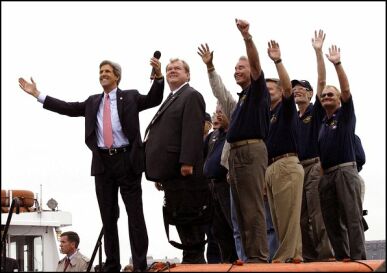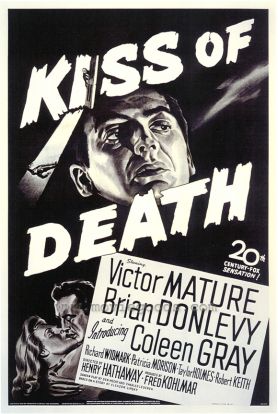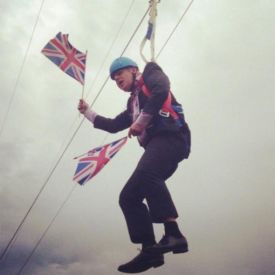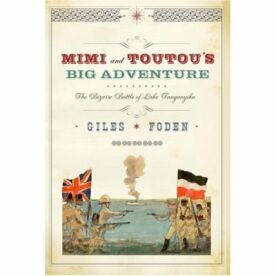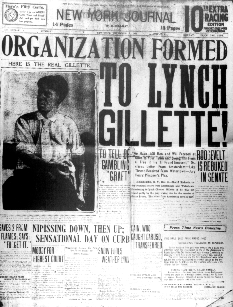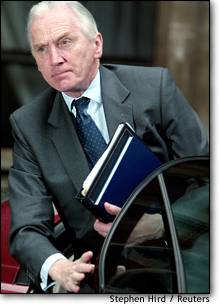Suffering Kerry
From The American SpectatorIn the media kerfuffle during the election campaign over John Kerry’s war record, there was frequent mention on both sides of the fact that passions were running so high because “honor” was at the stake. The Swift Boat Veterans for Truth had impugned Kerry’s honor, it was said, when they suggested that he had not actually performed the feats of bravery for which he had won the bronze star and the silver star in Vietnam, and that he had suffered only the most superficial of wounds, one or more of them (accidentally) self-inflicted, for which he had won his three purple hearts. He, in turn, along with his many apologists in the media, impugned the honor of those who brought such accusations against him, openly calling them malicious liars, while hinting and sometimes more than hinting at cowardice on the part of President Bush and Vice President Cheney for not having served in Vietnam as he did, whatever it was he actually did there.
Two centuries ago this year, one of America’s most eminent politicians was shot to death in a duel by the Vice President of the United States for making some such scandalous imputation — though we don’t know to this day what it was. If the Swift Boat controversy is truly a matter of honor, why don’t they resolve it as the Founding Fathers would have done? Many’s the time and oft that I, along with the most honorable Zell Miller and my colleagues at the Feudal Times and Reactionary Herald, have wished for a return to dueling in our public life as the shortest way to decorum and civility. There’s nothing like being asked to appoint a second and asked to choose between swords and pistols to persuade our public men to moderate their language about political opponents. But unlike Senator Miller, Senator Kerry, a well-known progressive, never seems to have thought of this as a solution to his problem.
And who can blame him? Nowadays, calling people coward and liar — the mentito as the code duello would have called it — is routine politics and nobody takes any notice of it. I suspect that heroism, by the same token, is heavily discounted by the electorate since it has become the property of the public relations adviser. Back in the days when honor demanded a price no hero would have dreamed of advertising his own heroism as Kerry did at the Democratic convention. Had he done so it would have been taken as prima facie evidence that he was no hero, as would his accusation in 1971 of those he now amusingly calls his “band of brothers” of war crimes. Even if they had been guilty of war crimes — and none of those Kerry mentioned has ever been proven — olde tyme heroes would have known that only a rat would have said so in public.
But ideas of heroism change. Nowadays, many think that Kerry’s anti-war testimony only adds a further lustre to his honorable service, the war having been, as we have been taught by sheer repetition to believe, “immoral.” Doubtless, some admirers may think him still more a hero for calumniating his erstwhile comrades, or for throwing his medals away. The truth is that we have to learn how to be heroes, and how to venerate them, and all that we have learned over the last thirty years gives primacy in heroism to victimhood. Just look at one of the most serious and elaborate statements of the candidate’s heroism to come out of the campaign so far, a movie called Brothers in Arms, which consists of interviews with such of the brotherhood remaining who support Senator Kerry’s aspirations to leadership and are prepared to testify to his heroism.
I have no reason to doubt what these men say, any more than I have to doubt what the Swift Boat Veterans for Truth say. Both, it seems to me, are equally credible since, given the Senator’s decision to make his war record into his chief qualification for higher office, neither can be regarded as a disinterested party. Those who support him will believe the four men interviewed in Brothers in Arms (a fifth died in 1997) while those who oppose him may believe those other eye-witnesses who call their testimony into question. But what is undeniable is what the film tells us about a certain view of heroism — the one most likely to be adopted by Kerry supporters — as not a matter of doing but of suffering. That’s also why the outrage in the Kerry camp against the Swift Boat Veterans is so much hotter against questions raised about his purple hearts than it is against those about his bronze and silver stars.
The new heroism, the heroism of the sufferer, is supposed by those who espouse it to make a man immune to criticism. Democrats never seem to tire of alleging that the Bush administration “attacked the patriotism” of Senator Max Cleland of Georgia, so leading to his defeat in a bid for re-election, though nowhere that I know of was his patriotism even mentioned, except by its putative defenders. The assumption seems to be that any attack on a crippled veteran is ipso facto an attack on his patriotism. Senator Kerry’s response to attacks on himself has shown that he takes a similar view of the power of his own wounds, however superficial they may or may not have been, to confer on him a similar immunity. In the movie he makes constant reference to what he learned from his experience in Vietnam — not to trust his superiors, for instance — but even though he does not list it among the things he learned, one was clearly that suffering is more honorable than biffing the enemy. More useful politically too.
Likewise, the men who served with him on PCF-94 — Gene Thorson, Del Sandusky, David Alston and Mike Medeiros — show the signs of their upbringing in the post-honor culture of today. Men have always had to be taught what to say about their military service. Once it was dishonorable to brag and honorable to be modest and not to wish to talk about one’s experiences. Over and over again, like automata, the veterans of the Second World War would say — and still say — “I was just an ordinary guy doing a job.” That’s how you were supposed to know that they were much more than ordinary guys doing a job. But with Vietnam it became honorable, if not to brag exactly, at least to wallow in psycho-therapeutic jargon about one’s sufferings. So it is that the Brothers in Arms, all of whom look to be in as robust health as Senator Kerry himself, feel it incumbent upon themselves in this film to strip their sleeves and show their scars and say “These wounds I had on Crispin’s Day” — or at least the contemporary equivalent, which is to treat us to a peek at their extensive psychological scarring.
Collectively, this goes under the name of Post-Traumatic Stress Disorder or PTSD — an illness unknown to science until after the Vietnam war was over but now easily spoken of by the humblest ex-grunt. It encompasses everything from “survivor’s guilt” to nightmares to addictions to drugs and alcohol to thoughts of suicide, and all these things are mentioned by the suffering veterans of PCF-94 as being among the crosses they have had to bear for serving their country. They also suffered, as everyone knows the Vietnam vets did, from being despised and spat upon and called baby killers when they came home. For this, oddly, it never occurs to them to blame the ostentatiously admired and admiring Lt. Kerry, who was one of the ones proclaiming to the world that they were baby-killers. Instead the guilt is all heaped upon the broad shoulders of Uncle Sam. “You programmed me to be a killer,” as Mr, now Reverend, Alston apostrophizes his government, “but you didn’t de-program me.” Even when he kills, he’s the victim!
The only one of Kerry’s shipmates not to claim the honor of victimhood is Mike Medeiros. He is also the only one to venture a word of criticism — a mild one, to be sure, but standing out unmistakably amidst the love-fest that is the rest of the movie — of Lt. Kerry for his anti-war activities. It shows that there lingers some folk memory of the older standard of heroism left over from World War II. Kerry himself suggests as much when he says in a political speech with his now-aged “band of brothers” around him on the platform: “We didn’t think we were special.” Of course, now that he has made his Vietnam service into the only thing worth mentioning that qualifies him for the presidency he has obviously come to think that it makes him very special indeed. But a distant echo from the generation of the doing-heroes popping up among that of the suffering-heroes hints that the latter, though they are beyond honor, may not yet be beyond shame.
Discover more from James Bowman
Subscribe to get the latest posts to your email.

